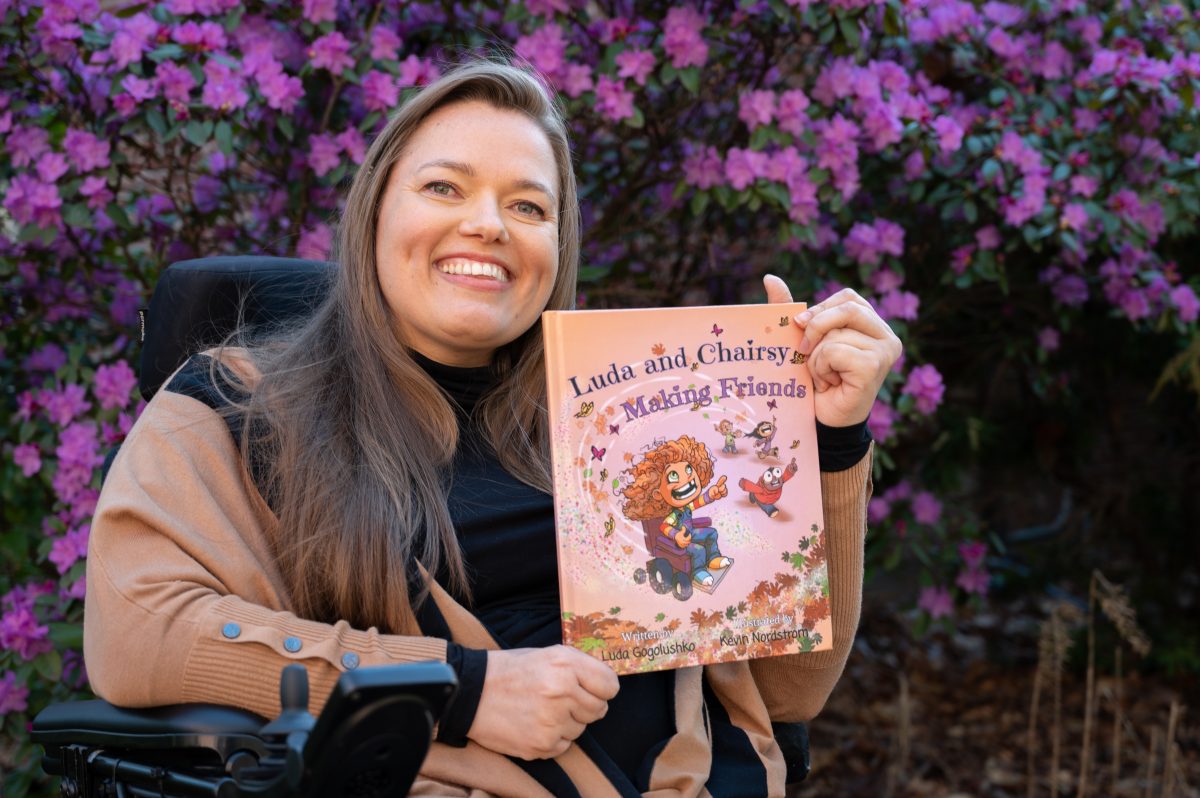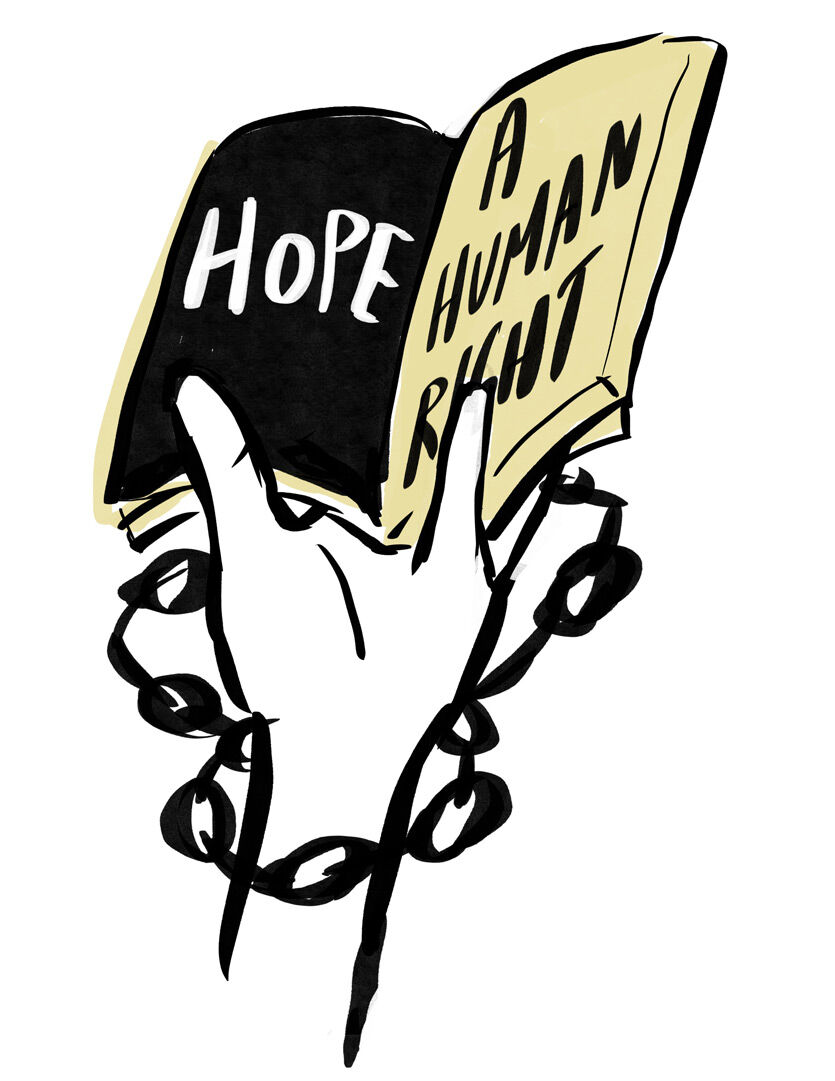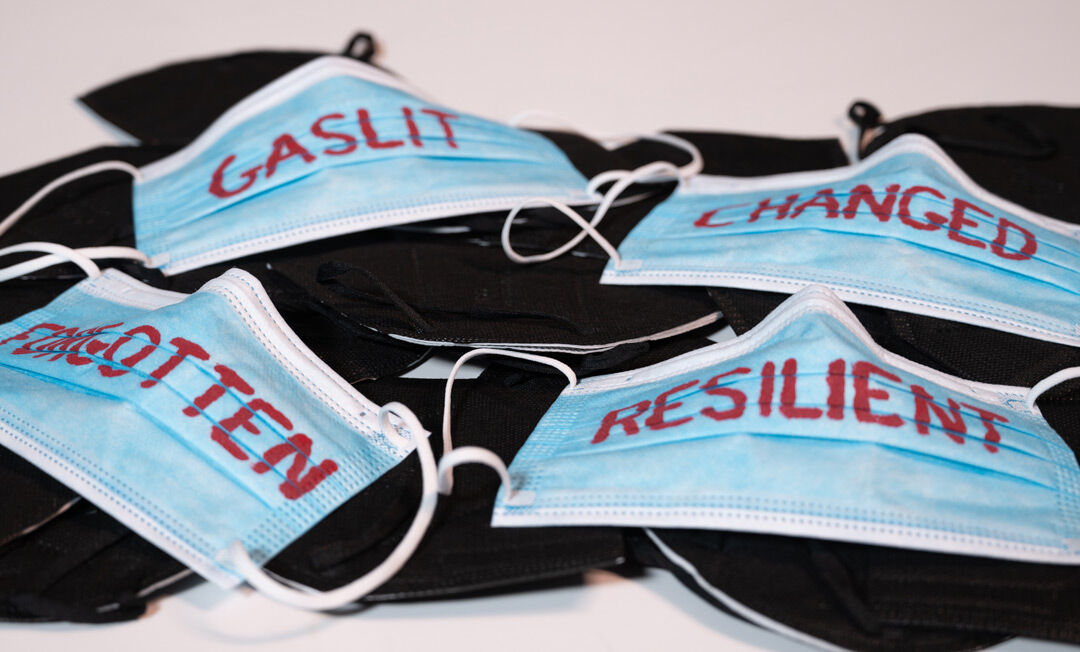In the fantastical literary landscape of children’s books, anything from cats in hats and caterpillars that are very hungry can happen — to an extent. These books blend the imaginary with reality, oftentimes giving human qualities to other-than-human characters, but only those deemed “acceptable” or “normal.” INCLUDAS Publishing, which produces inclusive, diverse children’s stories about disabilities, and its founder, Luda Gogolushko, are changing that narrative.
Gogolushko has spinal muscular atrophy type three, a genetic disease that impairs the nervous system and skeletal muscles. SMA is considered a rare disease that affects approximately one out of every 10,000 people, according to the Centers for Disease Control and Prevention.
“With SMA or muscular dystrophy your muscles weaken over time,” Gogolushko says. “One day I was able to brush my teeth, but then it gets harder and harder and you get weaker, but you don’t notice it.”
In her formative years, Gogolushko faced a cultural medical model that perceives disability as a defect, and for an individual to have a high quality of life — these defects must be cured. Because of this, Gogolushko spent most of her upbringing in doctor’s offices under health-focused scrutiny.
About 26% of U.S. citizens, or 52 million people, live with a disability according to the Boston Medical Health Center. Four out of every ten adults with disabilities in the U.S. have experienced unfair treatment in healthcare settings, at work or when applying for public benefits in 2022, according to the Urban Institute.
“I think a large part of my childhood upbringing was focusing on the disability aspects, like did I eat healthy today or did I exercise, and I think that took away a lot of the real childhood I wish I had,” says Gogolushko. On the playground, Gogolushko was ignored and rejected. Other children were scared to play with her, and sometimes even parents would tell their kids to stay away.
“It feels like you’re a speck of dust no one can find or cares about,” says Goglushko. “ You feel so invisible.”
However, in a childhood marred by isolation and societal misconceptions, Gogolushko found solace in television shows with strong female leads like the “Power Rangers” or “Xena the Warrior Princess.” “Television was my childhood play, my imaginary play and my escape from all the medical side of disability,” says Gogolushko.
Gogolushko’s love for stories continued into her early adult life and drove her to get a master’s in communications at California State University, Northridge. Fuelled by a passion for storytelling and angered by the absence and misrepresentation of disability in literature and media, Gogolushko embarked on a journey to shift the narrative.
In 2015, she founded INCLUDAS hoping to end the trope of disability being a burden or something to be locked away, and sourcing most of her story ideas from childhood experiences.
According to the Cooperative Children’s Book Center, 3.4% of books published were written by or about those with a disability in 2019, even though 16% of people around the world have a disability. In 2019, INCLUDAS published its first book and continues to produce one to two books a year.
“I think because I felt such a connection with fictional characters, that’s how I got into wanting to see more of that in books. INCLUDAS is about creating characters that can change the world,” Gogolushko says. “I think a part of my childhood is happy or proud that I decided to be a warrior in a space that is filled with a lot of harmful disability representation.”
Through wondrous illustrations and colorful words, Gogolushko has invited those with a disability to engage in media where they finally play a positive role. “I think these stories just say that you have a disability, and that’s okay. You do not need to hide it or become nondisabled to fit in,” says Gogolushko. Recognizing how ableism intersects with other forms of prejudice, especially racial discrimination, her books don’t just focus on disability.
“With this last book, I just really had to think about what we are actually not seeing. We’re not seeing black disabled girls in wheelchairs,” says Gogolushko. INCLUDAS released “The Biggest Gift of All” in November 2023 and Melquea Smith, a Black, Queer, multi-award-winning children’s book illustrator, produced its artwork.
Set at a child’s birthday party, watercolors and pastel presents fill the pages. “The Biggest Gift of All” revolves around Tasha, a Black girl in a bright pink wheelchair, who’s determined to give her companion Sam a gift larger than their friendship. Dismayed when her other friends keep bringing bigger and bigger gifts, Tasha feels as though her gift is not good enough. In the end, however, young readers get to learn that true friendship is the biggest gift of all.
Apart from creating children’s books, the publishing agency has recently taken on a new initiative: researching how people view disability representation in the media.
Mira Coles, an undergraduate student at the University of Oregon, interned at INCLUDAS as the education activities coordinator over the summer and has stayed on to do research. Coles was originally drawn to the position for its publishing experience, not knowing that the agency had a diversity and disability focus.
“I just feel so ignorant when I look back before I never really thought about any of this, and now it’s impossible to ignore,” Coles says. Whenever she watches a movie or picks up a book, Coles now finds herself critically analyzing media using what she learned at INCLUDAS, which she’s grateful for.
Alongside Coles, Gogolushko is conducting interviews with disabled and non-disabled individuals regarding their feelings towards disability representation in the media. Recently, they have been talking to the Accessible Education Center, SOJC professors and more to promote the research. Their goal is to get 30 interviews by the end of spring term, and have just finished their pilot beta test for research.
Outside of being a publisher and researcher, Gogolushko is also a graduate teaching fellow at UO where her advocacy for the disabled community transcends beyond the pages of her books. Winter term of 2024, she taught Disability and Media Technology, a class that focuses on how media technology often shapes and reinforces discriminatory practices because disabled people are frequently excluded from the design process.
Both through INCLUDAS and at UO, Gogolushko has been able to rewrite the narrative for not only the disabled community, but also, herself.
“I’ve had to learn to shift perspectives and not look at myself as how society views disabilities, but to view myself as a person for who I am,” says Gogolushko. “Writing is like my therapy.”








![[Photo Courtesy of the Lara Family]
Ruben embraces his beloved childhood goat, Katrina.](https://ethos.dailyemerald.com/wp-content/uploads/2025/05/katrina-1-1060x1200.jpg)


